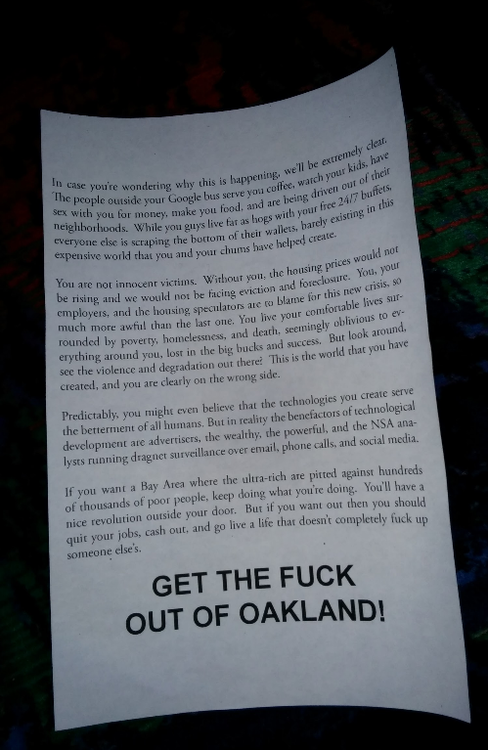"Polynesians have “given” to Western cinema famously. The Western producers have “borrowed” with enthusiasm. We are attractive subjects. Our stories are “universal”; they are “absolutely international”. Ah, those cheekbones; ah, the suppressed savagery; and ah, last but not least, the allure. Brown her up; brown her down; see how beautifully she moves; what feelings she has.
Indigenous Peoples have been generous, as well, with their traditional designs, emblems, concepts, poetry, songs and art works. The koru is painted on our national carrier; the Rugby Union seeks to get a special act through parliament to protect the Silver Fern logo; even the sacred tiki, trembling with another power, has, in plastic imitation, found its way into the tourist memento box and earned a handsome dollar. So it is profoundly insulting, my friend, to have you use the phrase “cultural A” [Apartheid] when talking about Indigenous Peoples and their generosity (alleged lack of) with respect to sharing their intellectual and cultural treasures."
—
Barry Barclay (2003) An Open Letter to John Barnett
Note: John Barnett is one of the Producers of Whale Rider. Whale Rider won the 2003 Sundance World Cinema Audience Award, the 2003 Rotterdam Festival Audience Award and the 2002 People’s Choice Award at Toronto International Film Festival. Whale Rider is taken from the novel of the same name, which was written by Maori author Witi Ihimaera. There have been rumblings from some Maori about the fact that Whale Rider has been adapted for screen, directed, and produced by an all-White team. It is a story unique to the descendants of the tribe, Ngati Porou whose lands are centered on the East Coast of the North Island of Aotearoa, (New Zealand). Much has been made of who is telling our stories, (Maori stories), and who therefore has control of the Maori voice. Barry’s letter is in response to John Barnett’s attempts to internationalize, or universalize Whale Rider in order to justify this particular instance of appropriation.
(via sociophilia)
(via kakaimeitahi)
"
Dear American Non-Black, if an American Black person is telling you about an experience about being black, please do not eagerly bring up examples from your own life. Don’t say “It’s just like when I…” You have suffered. Everyone in the world has suffered. But you have not suffered precisely because you are an American Black. Don’t be quick to find alternative explanations for what happened.
[…]
Don’t say “We’re tired of talking about race” or “The only race is the human race.” American Blacks, too, are tired of talking about race. They wish they didn’t have to. But shit keeps happening. Don’t preface your response with “One of my best friends is black” because it makes no difference and nobody cares and you can have a black best friend and still do racist shit and it’s probably not true anyway, the “best” part, not the “friend” part. Don’t say your grandfather was Mexican so you can’t be racist. Don’t bring up your Irish grandparents’ suffering. Of course they got a lot of shit from established America. So did the Italians. So did the Eastern Europeans. But there was a hierarchy. A hundred years ago, the white ethnics hated being hated, but it was sort of tolerable because at least black people were below them on the ladder. Don’t say your grandfather was a serf in Russia when slavery happened because what matters is you are American now and being American means you take the whole shebang, America’s assets and America’s debts, and Jim Crow is a big-ass debt.
[…]
Finally, don’t put on a Let’s Be Fair tone and say “But black people are racist too.” Because of course we’re all prejudiced…but racism is about the power of a group and in America it’s white folks who have that power. How? Well, white folks don’t get treated like shit in upper-class African American communities and white folks don’t get denied bank loans or mortgages precisely because they are white and black juries don’t give white criminals worse sentences than black criminals for the same crime and black police officers don’t stop white folk for driving while white and black companies don’t choose not to hire somebody because their name sounds white and black teachers don’t tell white kids that they’re not smart enough to be doctors and black politicians don’t try some tricks to reduce the voting power of white folks through gerrymandering and advertising agencies don’t say they can’t use white models to advertise glamorous products because they are not considered “aspirational” by the “mainstream”.
[…]
And remember that it’s not about you. American Blacks are not telling you that you are to blame. They are just telling you what is.
"
— Chimamanda Ngozi Adichie, Americanah (via mahakavi)
(via queergiftedblack)





